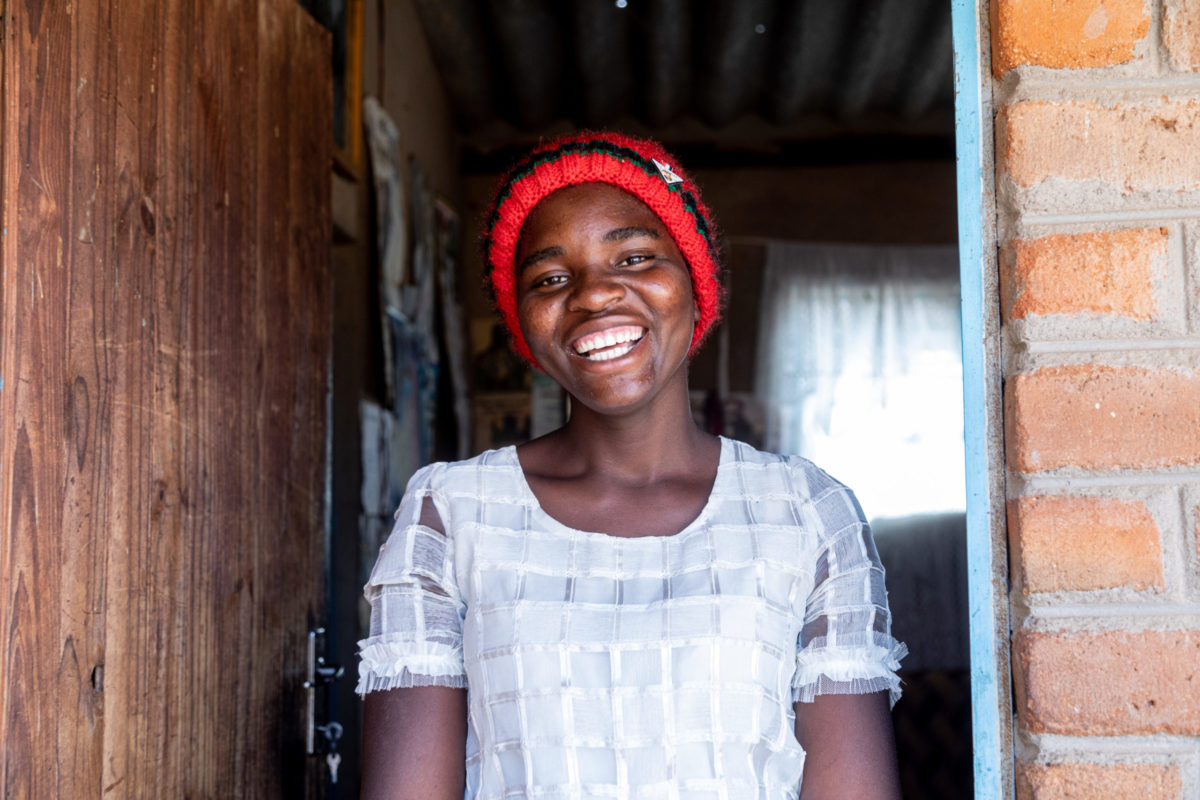Everjoy and Moreblessing: Diamonds worth polishing
EVERJOY MASASE (19) thought she would be preparing for her ordinary level examinations this November but,
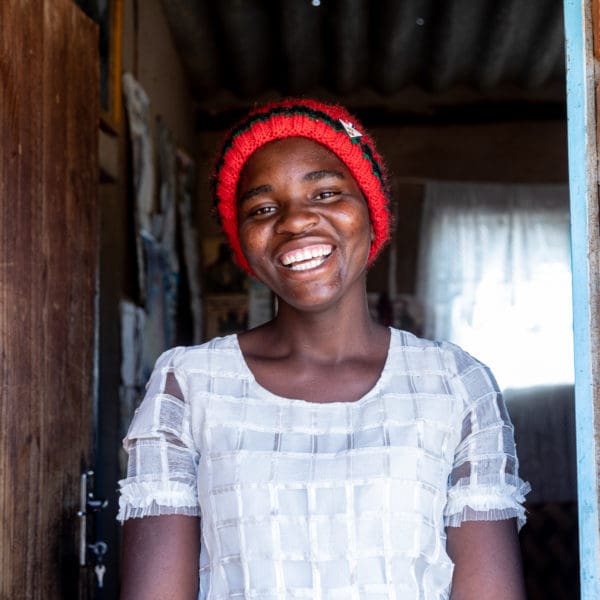
SEPTEMBER 13, 2021: When EVERJOY MASASE (19) left Rufaro Village in Masvingo, she didn’t think she’d have something to smile about. Nine months later, with her new skills, she earns a few dollars from selling the face masks she sews. © Charmaine Chitate/ CARE.
a simple half-truth from a neighbour changed the course of the life she knew. “My father used to tell me he doesn’t have money to waste on educating a girl,” Everjoy reminisced, “whenever I requested anything from my parents, they would flippantly disregard it. They didn’t care, and it was heartbreaking.” Choking back emotion as she speaks, Everjoy recounts how she left her parents’ home as a girl and became a wife.
Written By: CHARMAINE CHITATE
Born into a family of five siblings, four girls and a boy, Everjoy remembers her days at school, “I loved sewing and geography. I was a good student, and all the teachers at my school used to say so.” This was not enough to convince her parents to invest in her education. When her father stopped paying her school fees early in form one (age 16), Everjoy found a solution, “I decided to have a boyfriend, and, at the time, we had a platonic relationship. Any time I needed fees or books for school, he would give me the money for it.” Investing in her future.
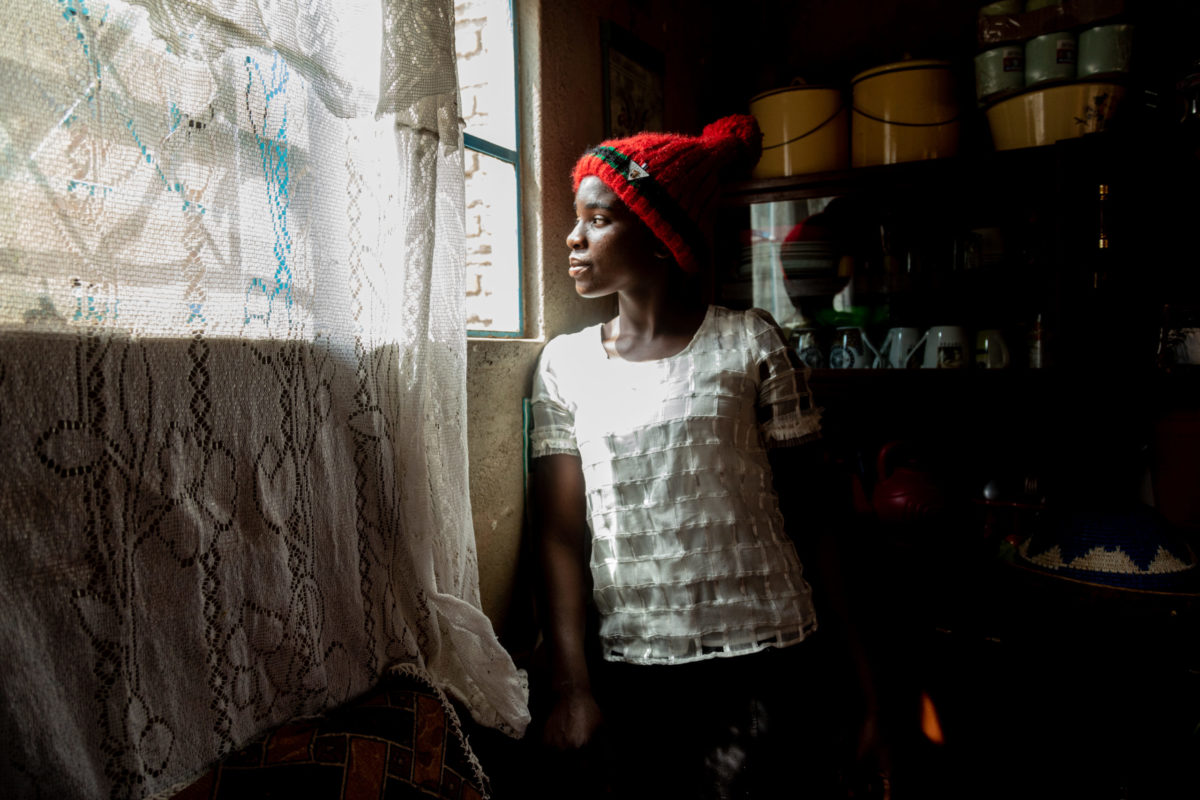
SEPTEMBER 13, 2021: When EVERJOY MASASE (19) left her parents home, the future looked bleak. © Charmaine Chitate/ CARE.
In SEPTEMBER 2020, a neighbour advised her parents that Everjoy may be pregnant. Given the opportunity, her parents didn’t need any further details and proceeded to throw her out of the house. “I felt abandoned,” Everjoy confided.
Today, Everjoy lives a different life from the one she grew up in. “My mother-in-law has been teaching me how to saw. When she purchases clothing material, she makes sure she gets some for me.” Using the floor as her cutting table and an old dishwashing sponge as a pincushion, Everjoy neatly cuts out a pattern for a face mask. “I can make face masks and underwear, and my mother-in-law sells what I make.”
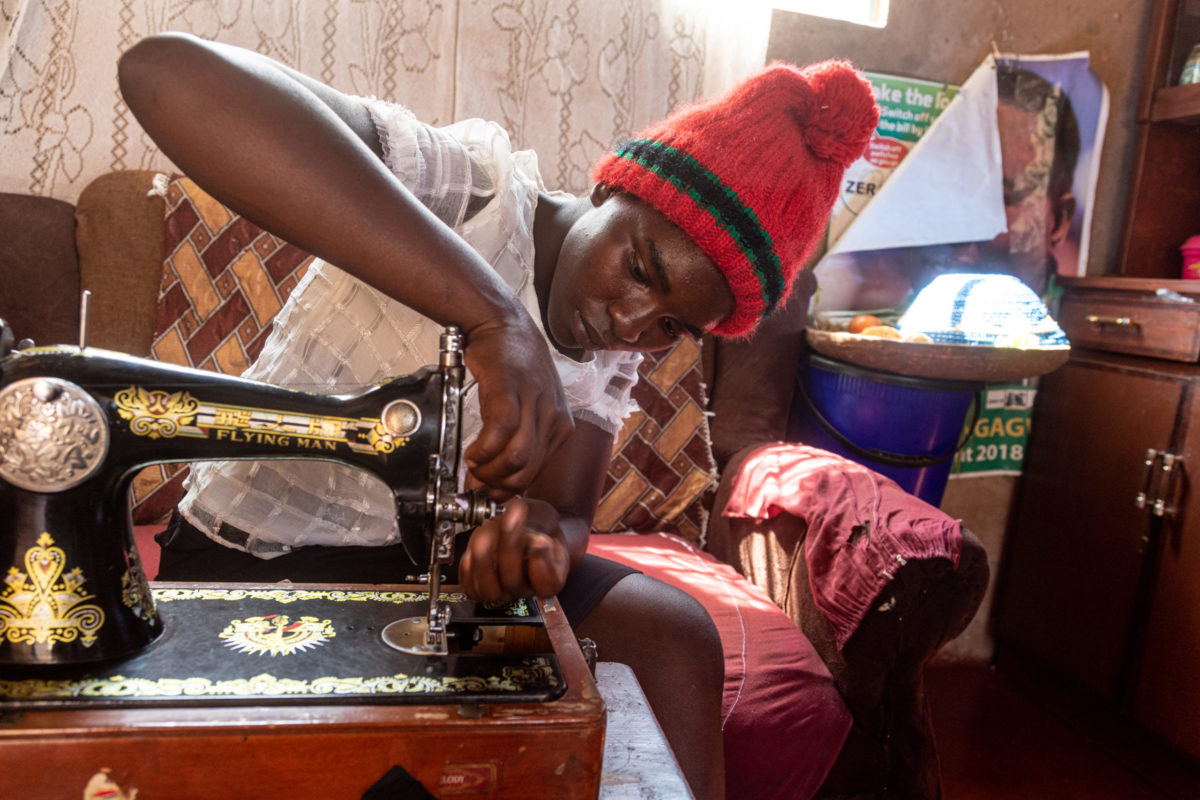
SEPTEMBER 13, 2021: EVERJOY MASASE (19) thread’s a sewing machine, a skill she learnt under her mother-in-law’s guidance. © Charmaine Chitate/ CARE.
Once wary of her mother-in-law, Everjoy looks forward to her weekly lesson, “I thought she would abandon me as my parents did. I now find I can tell her anything- even request sanitary wear, and she’ll bring it. My mother never did this.” Everjoy is making sure she absorbs different sewing techniques from her mother-in-law, “I want to own a sewing machine and learn to sew other things to make money.”
Sixty kilometres away, MOREBLESSING TAMAYI (16) was a student at the local high school in Machinga, Buhera. Then fifteen years old, Moreblessing fell pregnant and had to drop out of school and start fending for her new family. “I now buy kapenta in bulk then sell it at a profit in smaller portions,” she shares, “I don’t want to continue doing this. I want to raise enough money to take myself back to school.”
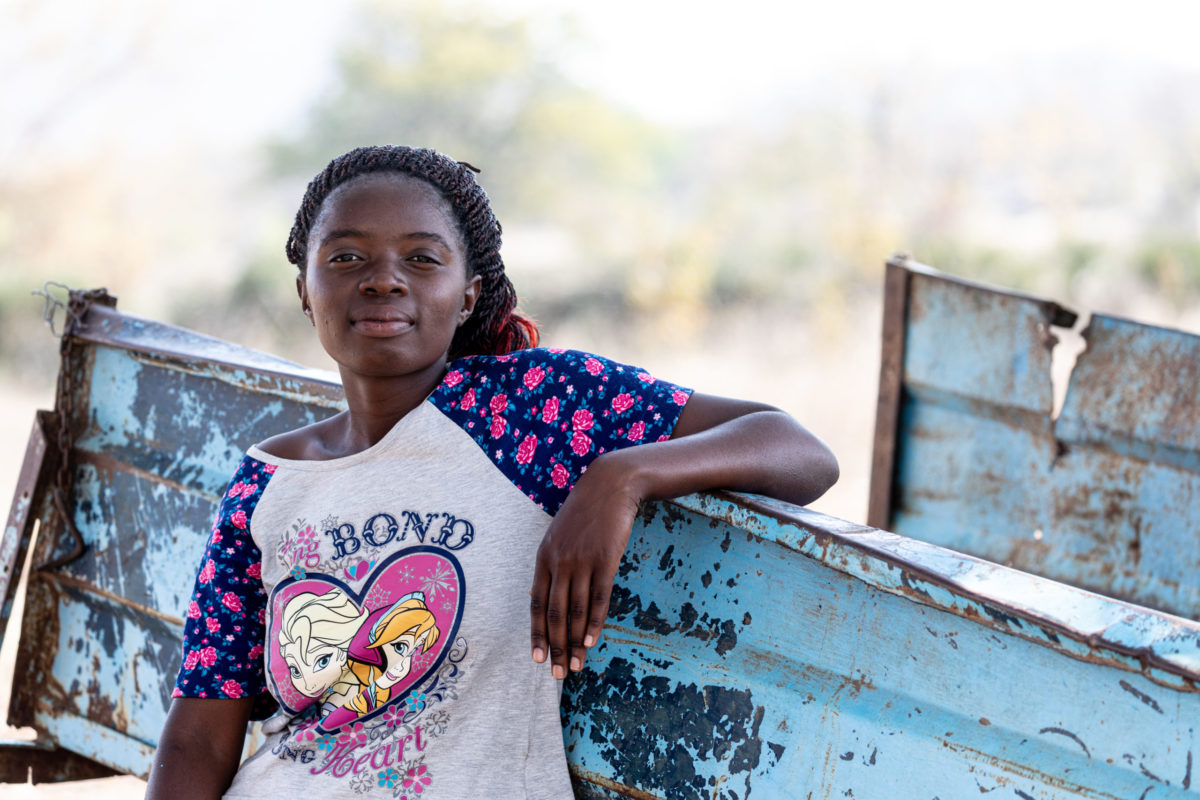
SEPTEMBER 14, 2021: MOREBLESSING TAMAYI (16) rests her arm on an overused cart in Buhera district. © Charmaine Chitate/ CARE.
Mother to a bubbly three-month-old son, Moreblessing, shares her aspirations are for the next five years, “I see myself working behind a desk, typing on a computer with people waiting for a meeting with me.” In the background, her mother-in-law scoffs at such an ambition.
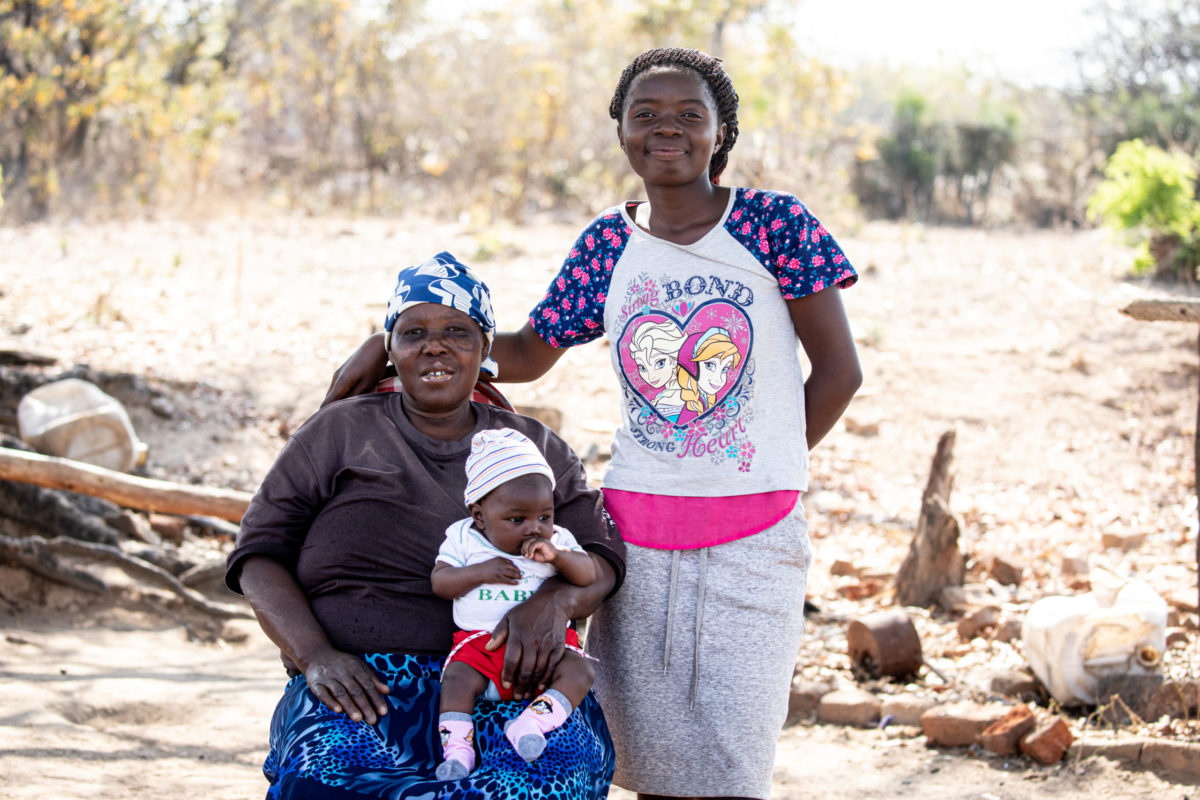
SEPTEMBER 14, 2021: MOREBLESSING TAMAYI (16) poses for a pictures with her mother-in-law and son. © Charmaine Chitate/ CARE.
Maxmillion Moyo, a Business Development Specialist at Takunda, said, “We noted a demand for technical vocational education and training (TVET) in the community action plans collected by our the Takunda community visioning team. The potential of young people and women is incredible. We are now mapping stakeholders, institutions, and individuals interested in improving access to labour markets, skills, self-employment, and employability.”
The need and potential of availing of TVET is best expressed by Waitwell Kambarami (51), a parent, a builder by profession, and a farmer in Rowa, Ward 14, Mutare Rural. Waitwell grew up with 11 other siblings, six sisters and five brothers. Their parents were not formally employed, and they lived off their subsistence farming. Using the profits gained from selling their farming produce, Waitwell’s parents invested in the education of their twelve children. All children completed their Form 4 (ordinary level) at different high schools; others completed their Advanced Level.
“How can I fail to send my children to school when my parents sent twelve?” asks Waitwell. This is the source of his drive to ensure his children prepare for the future. “My daughter finished a hotel and catering course at a vocational training center and is employed at a fast-food restaurant. My son is following in her footsteps with distinctions, and I have two other children still in junior school.”
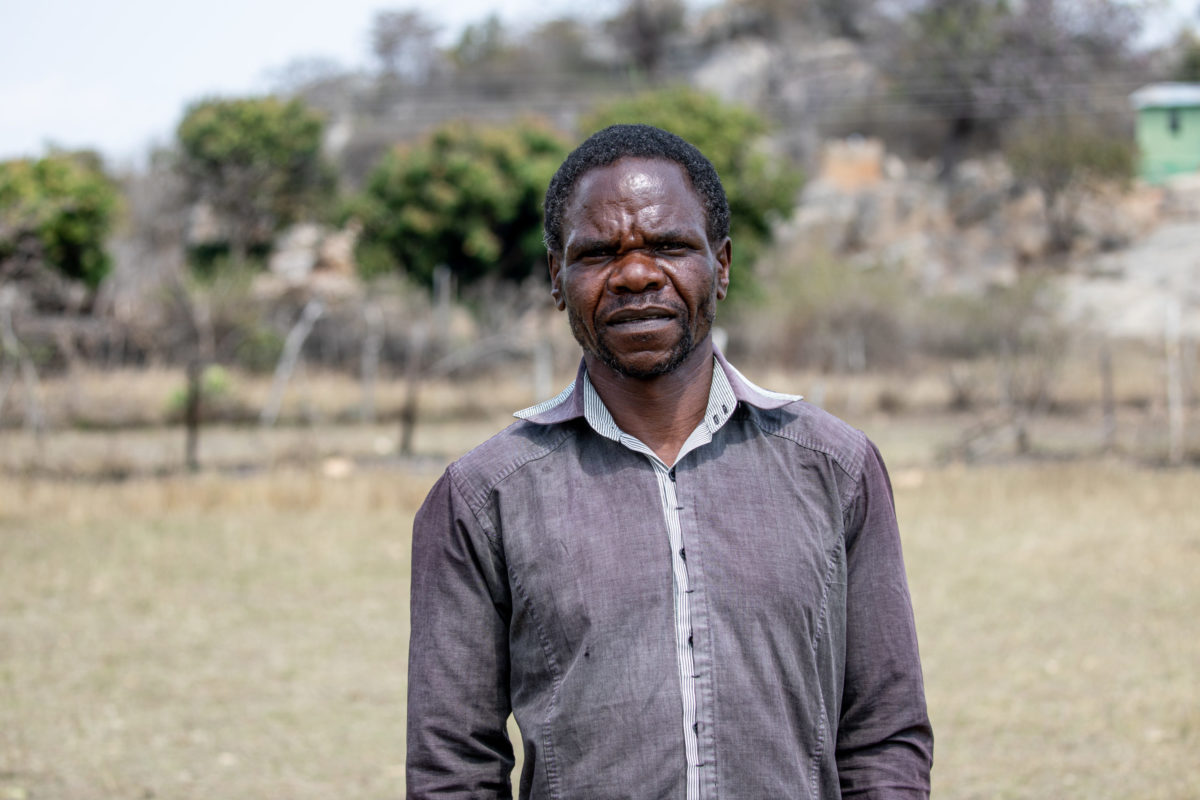
SEPTEMBER 09, 2021: Waitwell Kambarami (51), is a village headman and earns a living by offering his services as a builder. © Charmaine Chitate/ CARE
Waitwell attributes his achievements so far to multiple sources of income, ranging from buying and selling sugar & salt, building and being resilient. “I don’t want my family to live the same life I did. Their lives should be better.”
Written By:
Written by: Charmaine Chitate

